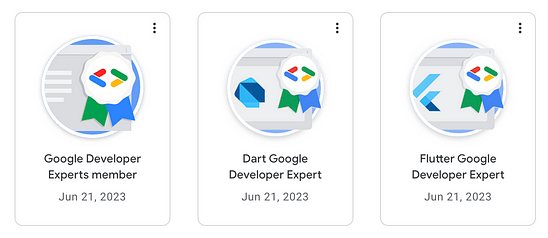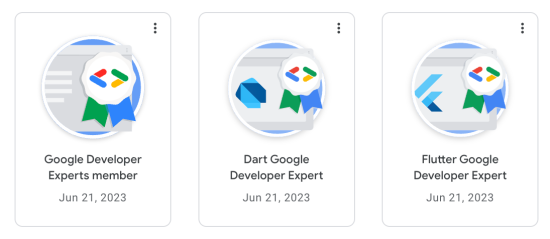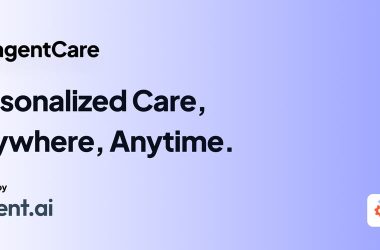
Recently, I became a Google Developer Expert (GDE) in the Flutter & Dart domain. I hope my experience can provide some insights for those who aspire to become GDEs.
Understanding “GDE”
The most important aspect of GDE is the “D,” which stands for Developer, serving as the starting point for engineers.
For a developer, a relatively common career development goal is to become a T-shaped professional. Being T-shaped means being specialized in one field and gradually developing into a full-stack expert.
So, how can one objectively demonstrate their skills to a certain level? The answer naturally lies in certifications. Many companies offer certifications, each with varying levels of authority in different technology stacks.
The GDE program, being a Google certification, implies a connection to the technologies associated with Google.
You might wonder, does one have to become a GDE to be considered an expert? Interestingly, I used to hold this belief for quite some time.
This brings us to the GDE program. It is not only a certification, but more importantly, becoming a GDE allows you to connect and communicate with over a thousand GDEs worldwide. It also facilitates direct communication and collaboration with Google, including providing feedback on development issues. This means you can access some internal materials and information before they are publicly available because the technology used is affiliated with Google. Nobody knows the technology’s development roadmap and evolution plans better than Google.
There’s an ancient Chinese saying that goes, “those closer to the water get the moon first”, which perfectly captures this idea.
From Google I/O to GDG
Several years ago, I was fortunate enough to win a ticket to the Google I/O conference and had the opportunity to attend the annual fest in Mountain View.
While filling out the registration form, the term GDG appeared multiple times, and at that time, I had no idea what the GDG program was.
Later, I researched and found out that GDG stands for Google Developer Groups, consisting of individuals interested in Google technologies and developer tools. GDG organizers regularly arrange various events, including technical talks, workshops, Hackathons, etc., to promote knowledge sharing, learning, and networking among developers.
Last year, I came across a Flutter DevFest call for speakers in an article on the Google Developers WeChat account. Being curious, I signed up with a “let me give it a try” attitude, and after going through the topic selection process, I eventually became a speaker for a CodeLab session.
Addressing the Pain Points of Flutter in China: Something Different to Share
Since its inception, Flutter has boasted a self-rendering engine and has been dedicated to creating cross-platform applications with outstanding user experiences. However, in China, developers often prioritize its cross-platform capabilities, rarely emphasizing its advantages from a user experience perspective.
As an interviewer, I often ask candidates a question: “Which are the top three Flutter apps you’ve used with the best user experience?” I’ve rarely received satisfactory answers or, in most cases, no answer at all.
Therefore, in the GDG sharing events I participated in, I focused on addressing this pain point. I aimed to share best practices for creating excellent user experiences rather than promoting a mix of cross-platform and lightweight experience approaches.
Is the GDE Interview Difficult?
My answer is that it’s difficult for those who are not prepared but not hard for those who are.
The GDE application process consists of three steps:
- Qualification review
- Community interview
- Product interview
My first GDE application ended in failure even before reaching the interview stage. The qualification review for GDE includes requirements for the number and frequency of sharing activities related to Google technologies. Applicants need to have a certain level of community influence. When filling out the form, it’s advisable to provide video links of presentations as the primary choice, with public content promotion as a secondary option. This is because the reviewers are mostly experts from abroad who prefer getting to know you through videos.
After six more months, Lily contacted me and suggested applying again. I felt prepared this time.
After successfully passing the qualification review, I proceeded to two rounds of interviews. The community interview was conducted by a GDE in the same domain as the one being applied for. I was matched with Ayush from India.
Three days later, I had the second round, a Product Interview. I was matched with Brett from Australia, who is a Google employee primarily focused on Flutter & Dart.
Both interviews lasted half an hour, and there is a certain requirement for English speaking skills. For this, I did some interview preparation, reviewing the English terms commonly used in technology.
I believe that failing to prepare is preparing to fail.
Benefits of Becoming a GDE
Next, you sign a Non-Disclosure Agreement (NDA) and receive an onboarding email notifying you of officially becoming a GDE.
One of the most direct benefits is being eligible to apply for JetBrains’ Developer Recognition, which is their Free License Programs. As long as you are recognized as an expert (such as a GDE) by them, you can enjoy free access to the entire JetBrains suite.
I would like to express gratitude to all the friends who have helped me during this period:
- Ulia, Lily, JC from Google DevRel Team
- Zoey from Google Flutter Team
- GDE Jun Da, RengWuXian
- GDG Ma Ping, Leo Yu, Stevn
Road to GDE was originally published in Google Developer Experts on Medium, where people are continuing the conversation by highlighting and responding to this story.





